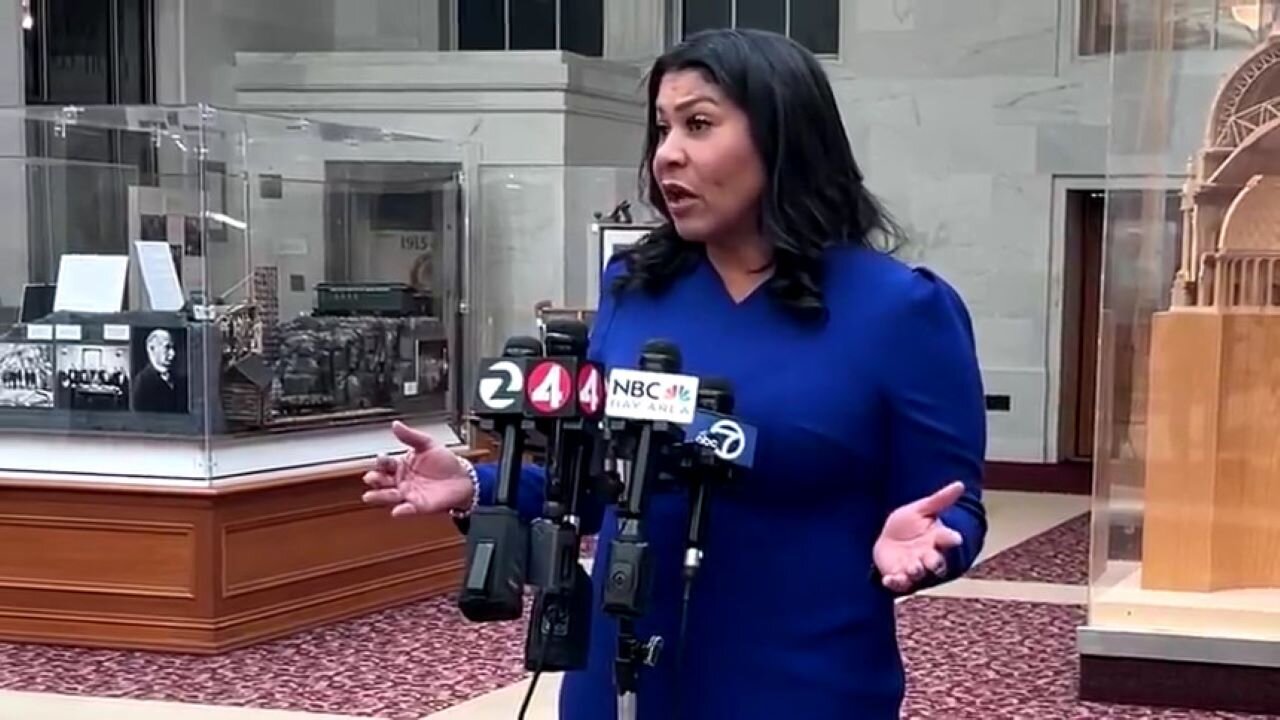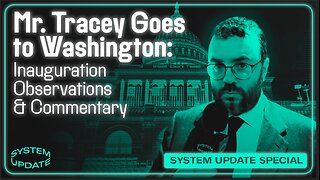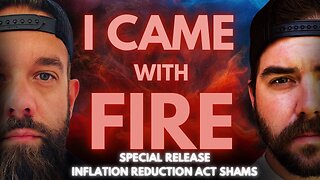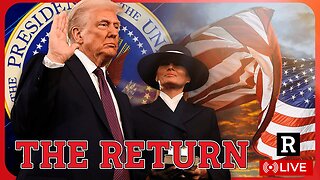Premium Only Content

Mayor London Breed: Supreme Court's Decision Will Allow San Francisco To Clear Homeless Encampments
Posted • June 29, 2024: The city of Grants Pass, Oregon, (that’s how it is spelled) has laws that prohibit homeless people from sleeping on public property. The Plaintiffs are homeless people who have never had these laws enforced against them but nonetheless they filed a class action suit on behalf of all homeless persons in the area. They argued, in part, that it was cruel and unusual punishment to punish a person for sleeping on public property at all if they are homeless. They argued that because there aren’t enough shelters and they have nowhere else to go, so the city was basically making it a crime to be homeless and then eventually fall asleep. So, the argument goes, they can’t help sleeping on public property, therefore to punish them at all is cruel and unusual. Based on that logic, the district court issued an injunction preventing the enforcement of these laws.
This was all based on a prior Ninth Circuit decision (Martin v. Boise, 920 F. 3d 584 (9th Cir. 2019)) that pretty much held the same thing five years ago, and has been wreaking havoc in that jurisdiction ever since. The Ninth Circuit is full of leftist activist loons who are not shy about imposing their leftist values on the people in their circuit. They count Alaska, Arizona, California, Hawaii, Idaho, Montana, Nevada, Oregon and Washington in its domain. It is the largest circuit in America physically and in terms of population. Frankly, it is too large, and should be split into at least two different circuits. In any case, when you hear all those stories about too many homeless on the streets in California or any of the other states on that list, this is part of the reason why. Ever since Martin, similar injunctions have spread all over that region, handcuffing what local officials could do about homelessness in their community.
Of course, all of these homeless people all over the place is just fine and dandy with many leftists, so even without these court orders, there would still be problems. But this decision positively stops the states in the Ninth Circuit from solving the problem, even if they want to. The Supreme Court let this nonsense go on for about five years. We are honestly at a loss why they waited that long. Even if they were waiting for a 6-to-3 conservative majority, we had that by the end of 2020—so why let it go on? Maybe the thought was that they wanted people living there to get thoroughly sick of this rule before they reversed it, so they would be glad to see it go. Who knows? In any case, the Supreme Court did reverse it today, saying that laws that prohibit all people—homeless or not—from sleeping on public property doesn’t violate the Eighth Amendment. And you might be tempted to say to that ‘Duh!
Of course, the Eighth Amendment doesn’t prohibit such laws, because it’s about how severe a punishment should be, not whether or not a certain act would be punished.’ And that is the correct and plain reading of the language of the amendment, but there was one Supreme Court precedent that did something different: Robinson v. California, 370 U. S. 660 (1962). In that case, they confronted a California law that made it a crime to be a drug addict and the Supreme Court decided that was unfair. After all, the Warrant Court reasoned, a person who hadn’t used drugs for years could still be called an addict. Indeed, since a person could theoretically become addicted to a drug because they were exposed to it by accident or otherwise against their will, in some cases a person might be have had no control over whether or not they were an addict. So the Supreme Court reasoned that punishing a person at all for being an addict was cruel and unusual, and therefore violated the Eighth Amendment.
And the interesting thing is that the Supreme Court didn’t overturn Robinson, but it strongly, strongly suggested it should be overturned. Writing for the Court, Justice Gorsuch argued that the parties in Robinson themselves hadn’t been arguing that novel Eighth Amendment theory—instead they were arguing that this anti-addict law violated due process and only brought up the Eighth Amendment on the theory that forcing the defendant to go cold turkey would be inhuman punishment. Furthermore, this precedent had never been cited to strike down a single other criminal law, suggesting it was an outlier. All of that is a strong signal that Robinson is extremely dubious as a precedent, and probably should be overturned. So, the Supreme Court refused to say that this violated the Eight Amendment because unlike Robinson, the law wasn’t criminalizing a mere status, but the decision to sleep on public land.
In decision Grants Pass v Jackson, the Supreme Court has ruled that camping bans do not violate the Eighth Amendment and are therefore constitutional. Cities can finally clean up the homelessness mess. -- Mayor London Breed addresses the Supreme Court’s Decision on ‘Grants Pass’ today. She’s says it will allow the city of San Francisco to be more aggressive on clearing homeless encampments. (…)
• More at: Twitchy - The Supreme Court Rules on Whether the Government Can Remove Homeless Encampments
https://twitchy.com/aaronwalker/2024/06/28/supreme-court-overturns-ninth-circuits-disastrous-homelessness-ruling-n2397760
Rumble: The Supreme Court Rules The Government Can Remove Homeless Encampments
https://rumble.com/v54j4gf-the-supreme-court-rules-the-government-can-remove-homeless-encampments.html
-
 2:05
2:05
NewsVids
4 hours agoWatch JD Vance's Face While Listening To Insanely Woke Bishop At Bipartisan Interfaith Prayer
1431 -
 1:27:06
1:27:06
Glenn Greenwald
4 hours agoMr. Tracey Goes To Washington: Inauguration Observations, Interviews & Commentary | SYSTEM UPDATE #393
66K28 -
 52:01
52:01
Tucker Carlson
9 hours agoNew York Mayor Eric Adams Sounds a Lot Like a Trump Voter
149K117 -
 2:47:25
2:47:25
Right Side Broadcasting Network
7 hours agoLIVE REPLAY: President Donald J. Trump Holds First Press Briefing Since Inauguration - 1/21/25
201K168 -
 LIVE
LIVE
Man in America
6 hours ago🔴 LIVE: Trump UNLEASHED! Dismantling the Deep State and Restoring America
862 watching -
 LIVE
LIVE
I_Came_With_Fire_Podcast
8 hours ago🔥SPECIAL RELEASE🔥 Inflation Reduction Act: American Seniors Get SLAMMED!!
126 watching -
 DVR
DVR
vivafrei
7 hours agoD.C. Gulag Jan. 6 Prisoners Release Watch!
135K71 -
 1:49:14
1:49:14
Redacted News
6 hours agoTrump is Back! Congress Uncovers New Biden Crimes One Day After He Leaves D.C. | Redacted
138K208 -
 2:09:53
2:09:53
Benny Johnson
6 hours ago🚨President Trump LIVE Right Now Making MASSIVE Announcement At White House News Conference
247K276 -
 2:04:10
2:04:10
Revenge of the Cis
7 hours agoEpisode 1433: Retribution
99.2K13